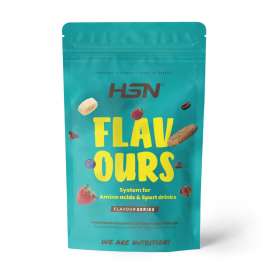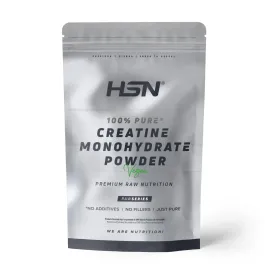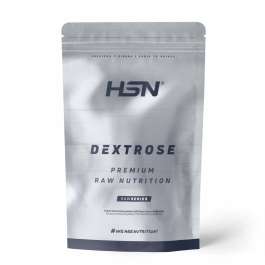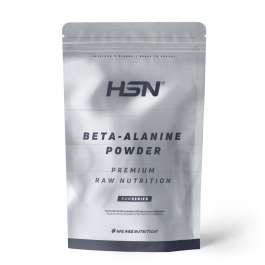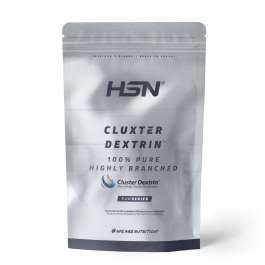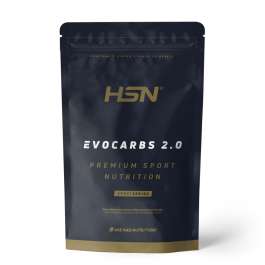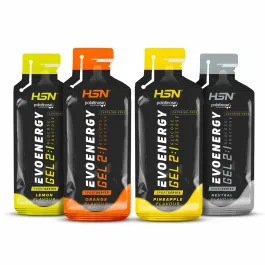
MALTODEXTRIN POWDER
Corn maltodextrin. GMO-free. RAW format. Unflavoured. Good solubility. Suitable for vegans. Specially for sportsmen.




- 100% high hydrolysis maltodextrin.
- Vegetable origin, suitable for vegans.
- RAW format, pure maltodextrin.
Table of contents
What is Maltodextrin powder?
Maltodextrin powder by RawSeries is a food based on maize maltodextrin.
Maltodextrin is a linear polymer of glucose from the hydrolysis of starch from starchy cereals.
Maltodextrin powder is a vegetable food derived from maize, 100% suitable for vegetarians and vegans.
Maltodextrin Powder properties
Carbohydrates
Maltodextrin is a digestible carbohydrate source.
Carbohydrates contribute to the recovery of normal muscle function (contraction) after high intensity or long duration physical exercise leading to muscle fatigue and depletion of stored glycogen in skeletal muscles.1
Why take Maltodextrin?
The source of carbohydrates that we consume in the greatest quantity in the Western diet is starch; we can find it in wheat, rice, oats, quinoa, and potatoes... In other words, in all our 'traditional' sources of carbohydrate consumption.
However, starch has a great peculiarity, and that is its high degree of polymerisation, they are molecules with great structural complexity, which means that they require a long and complex digestion process, which begins with chewing and ends in the intestine.
When we are athletes, we sometimes need to consume a large amount of energy in order to maintain our performance, and we need it to be digested and available quickly.
Maltodextrin plays an important role here, as it has a high glycaemic index due to its low molecular mass (compared to starch) and leads to a more rapid rise in blood glucose (Sands et al., 2009).
Maltodextrin is a modified starch carbohydrate ideal for athletes.
Why buy Maltodextrin at HSN?
Maltodextrin is a coined term, but do you know the differences between maltodextrins?
Don't miss out on HSN's product features!
Polymerisation
Did you know that...
Maltodextrins are polymers of less than 20 dextrose equivalents? (Saldivar y Perez-Carrillo, 2016)
Maltodextrin can have different degrees of structural complexity, those maltodextrins with a lower degree of polymerisation are simpler, more similar to the behaviour of sugars and are perceived as sweet on the palate.
Our maltodextrin is more complex, and its degree of polymerisation is high, with up to 84% of the raw material having more than 4 dextrose monomers in its dextrins.
We have chosen this raw material because it combines the high glycaemic index of starch hydrolysis, characteristic of maltodextrins, with less than 7% sugars in its composition.
Low sweetness
Sweeter maltodextrins are simpler, i.e. they have a lower degree of polymerisation and more sugars.
Our maltodextrin has a neutral taste, very slightly sweet due to the presence of small amounts of glucose and maltose from starch hydrolysis.
This is an unmistakable sign of the high percentage of dextrins that make up the product and do not add sweetness; an advantage for sportsmen and women:
You have sweeter options, such as dextrosa, but...
What if you are looking for a carbohydrate to add to your protein shake without affecting its taste?
With maltodextrin you won't even notice! It is excellent to combine with Evowhey 2.0 without increasing its sweetness.
Good solubility
The solubility of maltodextrin is good, it can even be mixed in a glass with a spoon, as it is easily soluble in water due to its hygroscopic properties.
However, we recommend using a specific mixing container, such as an HSN Shaker.
For all your smoothies!
GMO-free
The raw material for our maltodextrin comes from GMO-free maize starch.
It contains no other ingredients in its composition, it is 100% vegetable maltodextrin.
Why take Maltodextrin?
With:
Bibliographical references
- Sands, A. L., Leidy, H. J., Hamaker, B. R., Maguire, P., & Campbell, W. W. (2009). Consumption of the slow-digesting waxy maize starch leads to blunted plasma glucose and insulin response but does not influence energy expenditure or appetite in humans. Nutrition Research (New York, N.Y.), 29(6), 383–390.
Complementary bibliography
- Lifschitz, C. H. (2000). Carbohydrate absorption from fruit juices in infants. Pediatrics, 105(1), e4.
- Saldivar, S. O. S., & Perez-Carrillo, E. (2016). Maize. In B. Caballero, P. M. Finglas, & F. Toldrá (Eds.), Encyclopedia of Food and Health (pp. 601–609).
- Zavareze, E. da R., Kringel, D. H., & Dias, A. R. G. (2019). Chapter Three - Nano-scale polysaccharide materials in food and agricultural applications. In L.-T. Lim & M. B. T.-A. in F. and N. R. Rogers (Eds.), Food Applications of Nanotechnology (Vol. 88, pp. 85–128).
1 The beneficial effect is obtained by consuming carbohydrates from all sources at a total intake of 4 g per kg body weight, in doses taken within four hours (or at most six hours) after the end of high intensity or long duration physical exercise leading to muscle fatigue and depletion of stored glycogen in skeletal muscles.
Nutritional FactsMALTODEXTRIN POWDER 1Kg |
| per 100gper serving |
| Serving size: 2 scoops of 50ml (50g) | ||
| Servings per container: 20 | ||
| Amount per 100g | ||
|---|---|---|
| Energy Value | 1615kJ/380kcal | |
| Fat | 0g | |
| of which saturated | 0g | |
| Carbohydrates | 95g | |
| of which sugars | 7g | |
| Proteins | 0g | |
| Salt | 0.04g | |
| Protein calculated in dry matter (nitrogen *6.25) |
Ingredients
Maltodextrin.
Warnings
Keep in a cool and dry place. The scoop/product quantity equivalences (grams or milligrams) are indicative, as the density of powdered products may vary between flavours and batches. We recommend the use of a kitchen scale in cases where precise dosing is required. It is necessary to maintain a varied and balanced diet and a healthy lifestyle. Health claim awaiting European authorization.

How to take MALTODEXTRIN POWDER 1Kg
Mix 2 scoops of 50ml (approx. 50g) with 300-400ml of water.
The product reviews and opinions published reflect only the customers’ views and experiences. HSN does not verify or endorse such comments or claims, and is not responsible for the content provided in the reviews. Statements regarding food supplements have not been evaluated by the EFSA (European Food Safety Authority) and are not intended to diagnose, treat, cure, or prevent any disease or medical condition.
The product reviews and opinions published reflect only the customers’ views and experiences. HSN does not verify or endorse such comments or claims, and is not responsible for the content provided in the reviews. Statements regarding food supplements have not been evaluated by the EFSA (European Food Safety Authority) and are not intended to diagnose, treat, cure, or prevent any disease or medical condition.
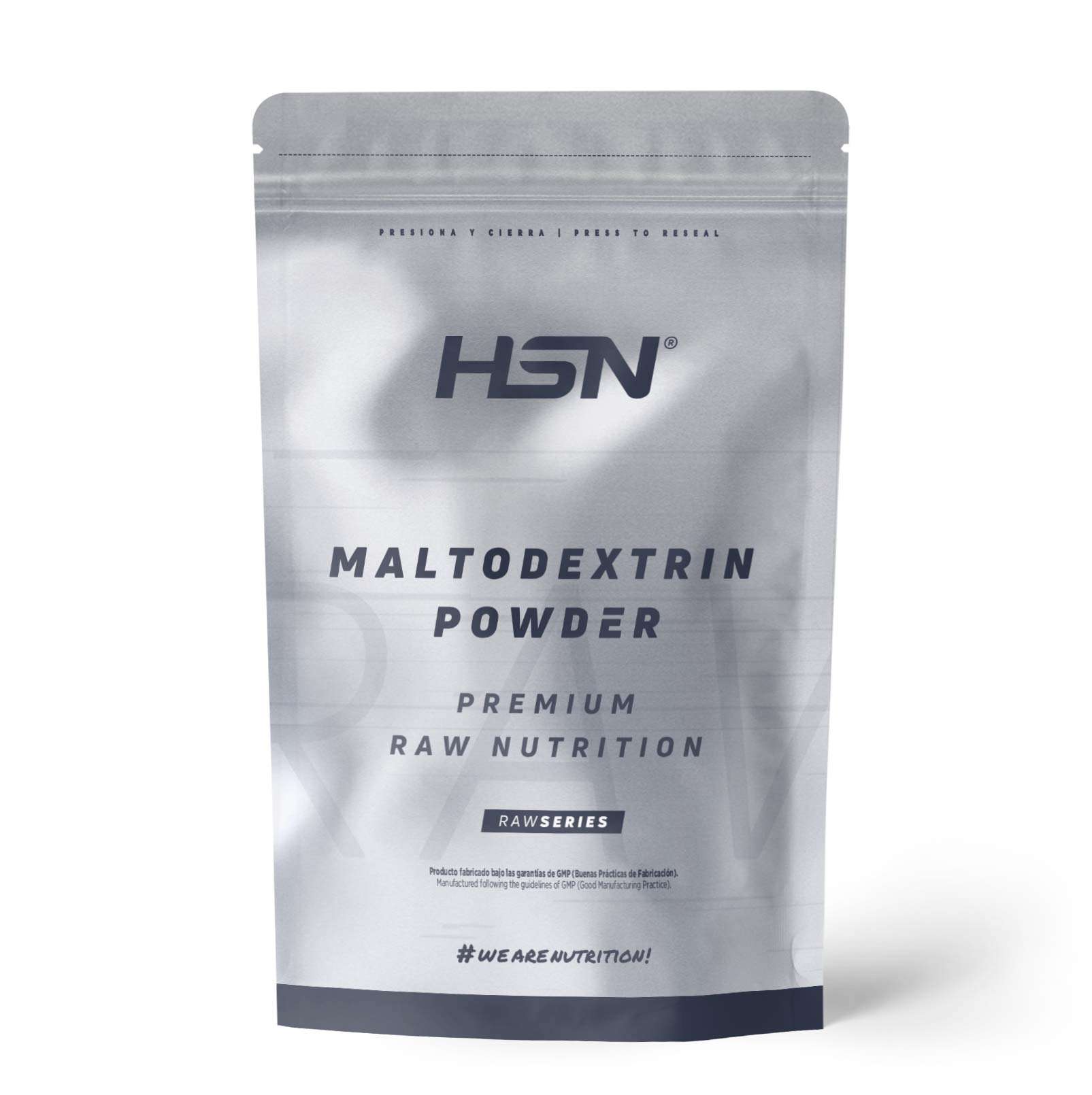
A satisfied customer says:
Excellent quality
Guillermo 30/05/2024
I have purchased for my endurance training and could not be more satisfied. The quality of the product is excellent, it dissolves easily and has no residual taste, making it perfect for mixing with other drinks. I have noticed a significant improvement in my energy levels and performance during long sessions, I will definitely buy again!
Show original language
A critical customer says:
Good, recommended.
Mohamed 01/02/2024
I bought the unflavored bag because there are no flavors. I had to buy boleros to flavor it since with the neutral flavor it makes a weird taste.
Show original language-
ECONOMIC
Xavier 21/01/2026
It is very economical to be able to prepare yourself the desired mixture to create your own isotonic or hypertonic combined with fructose. Very sweet taste according to the concentration (logical because they are sugars), but neutral.
Show original languageWas the review helpful? Be thefirst one to rate the review -
Strong
Apo 17/01/2026
Really gives power and strength in training. I would buy it again and really use it in training.
Show original languageWas the review helpful? Be thefirst one to rate the review -
Perfect for intra-workout or post workout
Pedro Oropesa 27/12/2025
My best option for intra-workout, mixed with water and other products, is a combination to avoid energy loss in demanding workouts.
Show original languageWas the review helpful? Be thefirst one to rate the review -
Guaranteed efficiency
Miguel 20/12/2025
Very effective at the time of training, along with brutal fructose, my routes are much longer and I notice less fatigue.
Show original languageWas the review helpful? Be thefirst one to rate the review -
Very effective
Juanillo 03/12/2025
Works great! It melts perfectly in water! Good sensations! For the price it works perfect Neutral flavor.
Show original languageWas the review helpful? Be thefirst one to rate the review
No reviews found with filters applied.
{title}
{nickname-date}
{detail}
{review-link} EN - EUR
EN - EUR Albania
Albania  Austria
Austria  Belgique
Belgique  Bosnia and Herzegovina
Bosnia and Herzegovina  Bulgaria
Bulgaria  Canadá
Canadá  Chile
Chile  Chipre
Chipre  Corea (la República de)
Corea (la República de)  Croacia
Croacia  Czechia
Czechia  Denmark
Denmark  Deutschland
Deutschland  Eslovaquia
Eslovaquia  Eslovenia
Eslovenia  Estonia
Estonia  Finland
Finland  France
France  Greece
Greece  Hungary
Hungary  Iceland
Iceland  Ireland
Ireland  Islas Feroe
Islas Feroe  Italia
Italia  Japan
Japan  Latvia
Latvia  Lithuania
Lithuania  Luxembourg
Luxembourg  Macedonia
Macedonia  Malta
Malta  Marruecos
Marruecos  Mónaco
Mónaco  Montenegro
Montenegro  Netherlands
Netherlands  Noruega
Noruega  Poland
Poland  Portugal
Portugal  Romania
Romania  Schweiz
Schweiz  Serbia
Serbia  South Africa
South Africa  Suecia
Suecia 


 View full analysis
View full analysis 